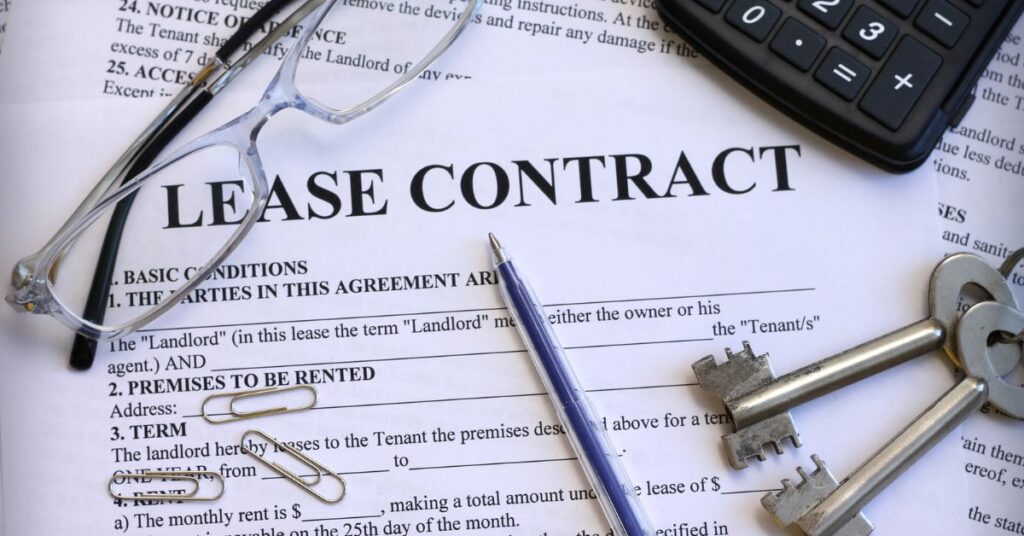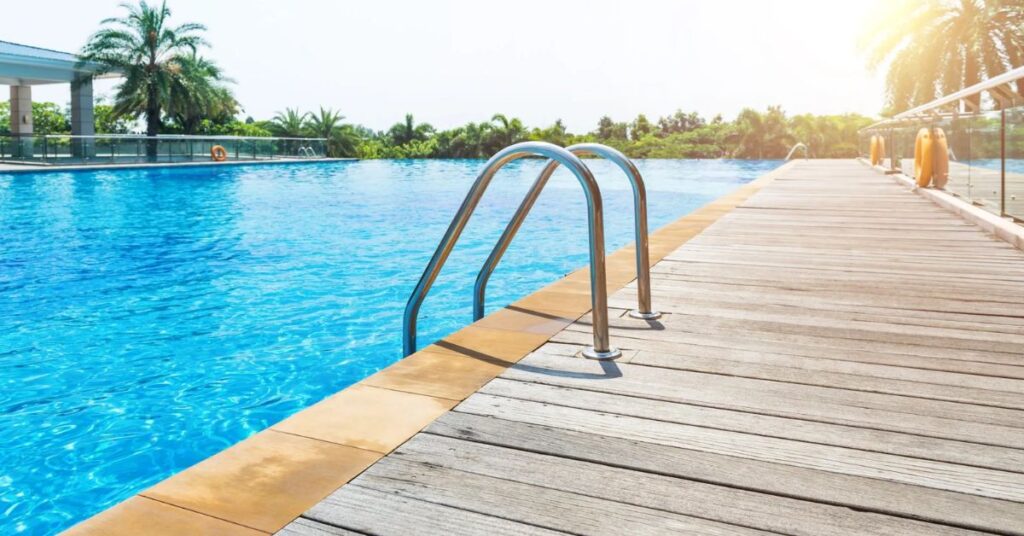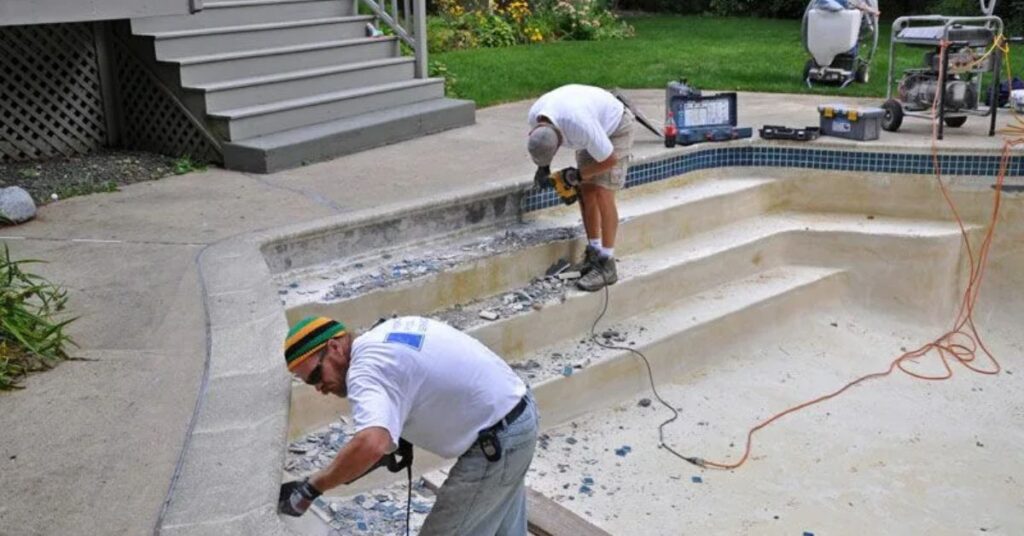Rental properties offer tenants a space to call home, but navigating the boundaries of personalization within these spaces can often lead to questions and misunderstandings. One such query that frequently arises is whether tenants possess the liberty to install a pool on the property they’re renting.
This question delves deep into the dynamics of tenant rights, landlord prerogatives, and legal obligations, stirring a debate that demands clarity and awareness. In essence, the inquiry revolves around the balance between tenant desires for personalization and the landlord’s authority over property modifications.
This juncture underscores the intricate relationship between property ownership and tenant rights, shaping the discourse on rental awareness and responsibility. As such, understanding the nuances of this debate illuminates the path toward informed decision-making, ensuring harmonious coexistence within the realm of rental agreements.
Understanding the Legalities of Installing a Pool
Understanding the legalities of installing a pool in a rental property is essential for both tenants and landlords. Lease agreements play a crucial role, as they dictate whether tenants have the right to pursue pool installation with landlord consent or if such modifications are expressly prohibited.
However, compliance with local building codes is paramount, ensuring adherence to safety standards and mitigating legal risks for both parties involved. By navigating these legal frameworks with diligence and awareness, tenants and landlords can foster a harmonious tenant-landlord relationship while ensuring the safety and integrity of the rental property.
The Role of Lease Agreements in Determining Tenant’s Right to Install a Pool

Lease agreements serve as foundational documents in determining a tenant’s right to install a pool on a rental property. These agreements often explicitly outline the permissions and restrictions regarding property modifications, including the addition of amenities like pools.
Depending on the language within the lease, tenants may find themselves either empowered to pursue pool installation with landlord consent or restricted by clauses prohibiting such alterations. Therefore, understanding the provisions within the lease agreement is essential for tenants seeking to install a pool, as it delineates the parameters within which they can exercise their rights while respecting the landlord’s prerogatives.
Tenant’s Obligations in Obtaining Necessary Permits and Licenses
Tenants bear the responsibility of obtaining necessary permits and licenses when considering the installation of a pool on rental property. In most jurisdictions, local regulations mandate that individuals acquire permits from the appropriate authorities before undertaking construction projects such as pool installation.
However, tenants may need to secure specific licenses depending on the nature of the project and local regulations. Failure to obtain the required permits and licenses not only violates legal obligations but also exposes tenants to potential fines and legal consequences. Therefore, tenants must diligently research and comply with all regulatory requirements to ensure lawful and safe pool installation.
The Importance of Compliance with Building Codes
Compliance with building codes is of paramount importance when considering the installation of a pool on rental property. Building codes are established to ensure the safety, structural integrity, and proper functioning of structures, including pools. Failure to comply with these codes can lead to serious consequences, including safety hazards for tenants, legal liabilities for landlords, and potential fines or penalties from regulatory authorities.
Therefore, tenants must adhere to building codes meticulously throughout the pool installation process, ensuring that the design, construction, and maintenance of the pool meet all relevant standards and regulations. By prioritizing compliance with building codes, tenants can safeguard both their well-being and the integrity of the rental property.
Factors to Consider Before Putting Up a Pool

Before proceeding with the installation of a pool on the rental property, tenants should carefully consider several factors to ensure informed decision-making and successful implementation. Firstly, it’s essential to evaluate the practicality and suitability of adding a pool, taking into account factors such as the property’s location, the demographic of the neighborhood, and prevailing weather patterns.
Secondly, tenants must assess the environmental impact of pool installation, considering factors like water consumption, chemical usage, and potential effects on local ecosystems. However, tenants should factor in the costs and ongoing maintenance requirements associated with pool ownership, including design and installation expenses, maintenance costs, insurance considerations, and potential repairs.
Lastly, tenants must familiarize themselves with any legal and regulatory requirements governing pool installation in their jurisdiction, ensuring compliance with building codes, permit regulations, and other relevant laws. By carefully weighing these factors, tenants can make informed decisions regarding the installation of a pool, maximizing enjoyment while minimizing potential risks and liabilities.
Evaluating Whether a Pool Addition Is Practical and Suitable
| Factors to Consider Before Putting Up a Pool |
| Practicality and Suitability |
| – Property location, neighborhood demographics, and weather patterns |
| – Environmental impact: water consumption, chemical usage, and ecosystem effects |
| – Costs and ongoing maintenance requirements: design, installation, insurance, and repairs |
| – Legal and regulatory compliance: building codes, permits, and other relevant laws |
Environmental Concerns and Consequences of Pool Installation
Key Considerations:
- Impact of pool chemicals on water quality and surrounding environment
- Water evaporation leads to potential water shortages
- Proper pool maintenance to prevent health risks and environmental damage
Consequences:
- Contamination of groundwater, soil, and vegetation
- Potential water shortages due to evaporation
- Health risks from poor water quality
- Damage to the surrounding environment from improper maintenance
Mitigation Strategies:
- Proper chemical treatment and monitoring
- Implementation of water-saving measures
- Regular maintenance and cleaning to ensure water quality
- Environmentally conscious practices to minimize impact
The Costs and Maintenance Involved In Building A Pool
The costs and maintenance involved in building a pool are significant considerations for tenants contemplating such an addition to their rental property. Firstly, there are the initial expenses, including design and installation costs such as excavation and landscaping, which can amount to a considerable investment.
However, tenants must budget for additional insurance coverage to protect against potential liabilities associated with pool ownership, including property damage and personal injury. Beyond the financial aspects, tenants must also be prepared for the ongoing maintenance responsibilities that come with pool ownership
How to Put Up a Pool as a Tenant

As a tenant considering putting up a pool, it’s crucial to navigate the process with care and consideration. Here’s a guide on how to proceed:
Engage with the Landlord
Begin by discussing your intention to install a pool with your landlord. Schedule a meeting, whether in person or through email, to communicate your plans. Explain why you want to add a pool and how it will benefit you as a tenant. Address any concerns your landlord may have regarding safety, maintenance, or insurance.
Understand the Landlord’s Policies
Inquire about your landlord’s policy on installing pools. Some may have strict rules against it, while others may require approval for the type, location, and size of the pool. Clarify any agreements or permits needed, and ensure you understand who is responsible for obtaining them.
Follow Proper Installation Procedures
Once you’ve obtained your landlord’s approval, hire a professional pool installer to handle the installation. It’s essential to follow the installation instructions carefully to avoid damaging the property and ensure the pool is installed correctly. Be sure to comply with any safety requirements and regulations set forth by local authorities.
Consider Insurance and Safety Precautions
Review your renter’s insurance policy to confirm coverage for pool-related damage, liability, and medical expenses. Additionally, consider taking out a personal liability umbrella policy to increase your coverage. Install safety features such as pool fencing, covers, and alarms to prevent accidents and comply with local regulations.
Regular Maintenance and Upkeep
As the pool owner, you’re responsible for its regular maintenance and upkeep. This includes cleaning, chemical treatment, and equipment maintenance. Keep the pool in good condition to avoid issues with your landlord and ensure the safety and enjoyment of all users.
Can A Tenant Put Up A Pool?
Whether a tenant can put up a pool largely depends on the terms outlined in the lease agreement and the landlord’s policies. In many cases, tenants are required to seek explicit permission from the landlord before making any modifications to the property, including installing a pool. Landlords typically have the final say on whether a pool can be installed, considering factors such as property suitability, safety concerns, and potential impact on the property’s value.
If the lease agreement explicitly prohibits tenants from installing pools or requires landlord approval, tenants must abide by these terms. Attempting to install a pool without permission could result in breach of contract and legal consequences.
Engaging With the Landlord and Determining Their Position
Engaging with the landlord and determining their position is the crucial first step for a tenant considering installing a pool. This involves initiating a conversation with the landlord to discuss the intention of adding a pool to the rental property. Whether through a face-to-face meeting or written communication, tenants should clearly articulate their plans, explaining the reasons behind wanting a pool and how it could enhance their enjoyment of the property.
During this discussion, tenants should inquire about the landlord’s stance on pool installations. Some landlords may have specific policies or preferences regarding property modifications, while others may be more open to the idea with certain conditions. Understanding the landlord’s position allows tenants to gauge potential challenges, negotiate terms if necessary, and ensure compliance with any requirements or restrictions set forth by the landlord.
Steps To Follow In Installing a Pool as a Tenant

Engage with the Landlord
Initiate a discussion with the landlord to seek permission and understand their policies regarding pool installations. Communicate your intentions, addressing any concerns or questions they may have.
Obtain Necessary Approvals
If the landlord approves the installation, ensure compliance with any local regulations, building codes, or homeowner association rules. Obtain any required permits or permissions before proceeding with the installation.
Hire Professional Installers
Select reputable pool installation professionals to handle the project. Ensure they have the necessary expertise and experience to install the pool safely and according to regulations.
Choose Pool Location
Determine the most suitable location for the pool on the property, considering factors such as space availability, sunlight exposure, and accessibility.
Install Safety Features
Install required safety features such as pool fencing, covers, and alarms to comply with safety regulations and prevent accidents.
Complete Installation
Supervise the installation process to ensure it is carried out according to specifications and safety standards.
Secure Insurance Coverage
Review your renter’s insurance policy to ensure adequate coverage for the pool and potential liabilities. Consider additional insurance options if necessary.
Implement Maintenance Plan
Establish a regular maintenance schedule for the pool, including cleaning, chemical treatment, and equipment maintenance. Follow manufacturer guidelines and best practices for pool upkeep.
Communicate with Landlord
Keep the landlord informed of the installation progress and any maintenance or repair needs. Maintain open communication to address any concerns or issues that may arise
Importance of Insurance and Safety Precautions
The importance of insurance and safety precautions cannot be overstated when installing a pool as a tenant. Firstly, insurance coverage serves as a crucial safeguard against potential liabilities associated with pool ownership, offering financial protection in case of accidents, injuries, or property damage. However, compliance with safety regulations and the implementation of precautions such as fencing, covers, and alarms are essential to ensure legal compliance and mitigate risks.
By prioritizing safety measures and insurance coverage, tenants and landlords can enjoy the benefits of a pool while minimizing concerns about accidents, liabilities, and financial burdens. Ultimately, investing in insurance and safety precautions provides peace of mind and contributes to a safer and more responsible pool ownership experience for all parties involved.
Stay safe around the pool this summer
As summer approaches and pool activities become more prevalent, it’s crucial to prioritize safety around the pool. Supervision is paramount, especially for children and inexperienced swimmers, as drowning can occur swiftly and silently. Enrolling in swimming lessons and teaching essential water safety skills can significantly reduce the risk of accidents.
However, installing proper pool barriers and keeping life-saving equipment nearby are essential safety measures. Enforce rules against running and diving to prevent injuries, and encourage staying hydrated and protected from the sun’s harmful rays. Knowing CPR and basic first aid is invaluable in case of emergencies. By following these safety precautions, everyone can enjoy a fun and worry-free summer by the pool.
Read As: Is Tenant Background Search Legit? – Rental Awareness
Frequently asked question
Can a tenant put up a pool without the landlord’s permission?
No, a tenant cannot put up a pool without the landlord’s consent. Landlords typically have the right to approve or deny any changes to the rental property.
What should a tenant do before installing a pool?
Before installing a pool, a tenant should engage with the landlord, seek permission, and ensure compliance with lease agreements and local regulations.
Who is responsible for obtaining permits and licenses for pool installation?
Generally, tenants are responsible for obtaining necessary permits and licenses before installing a pool on the rental property.
Are there any restrictions on pool installations in lease agreements?
Lease agreements may contain restrictions on pool installations or require tenants to seek landlord approval before proceeding with any modifications.
What are the consequences of installing a pool without permission?
Installing a pool without permission can result in legal and financial consequences, including breach of contract and potential liability for damages.
Can a tenant be held responsible for pool maintenance and repairs?
Yes, tenants are typically responsible for maintaining and repairing the pool, including regular cleaning, chemical treatment, and equipment upkeep.
Does renters insurance cover pool-related accidents?
Renters insurance may provide coverage for pool-related accidents, liability, and property damage, but it’s essential to review the policy for specific coverage details.
What should a tenant do if they want to remove the pool?
If a tenant wants to remove the pool, they should consult with the landlord and follow the proper procedures outlined in the lease agreement.
Conclusion
In conclusion, the question of whether a tenant can put up a pool ultimately depends on various factors, including lease agreements, landlord policies, and local regulations. Tenants must engage with their landlords, seek permission, and ensure compliance with all relevant requirements before proceeding with any pool installations.
Both tenants and landlords need to communicate openly, understand their rights and responsibilities, and prioritize safety and legal compliance throughout the process. By navigating the installation process responsibly and collaboratively, tenants can enjoy the benefits of a pool while maintaining a positive and respectful relationship with their landlords

James, with 5 years of business experience, brings expertise to our website. His profile reflects a commitment to excellence and innovation in his field.







